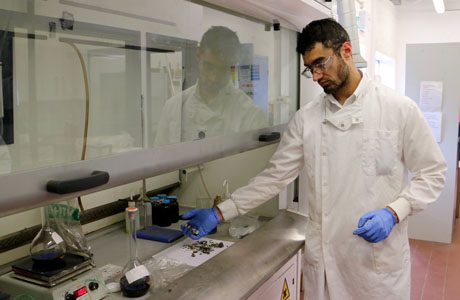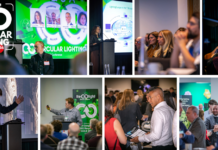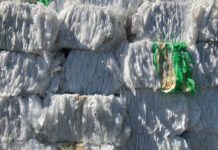
Novel separation techniques to recover high-value metal compounds from automotive battery packs are being explored as part of a £14 million research consortium.
The AMPLiFII Project (Automated Module-to-pack Pilot Line for Industrial Innovation) has received £10 million of funding from the UK’s innovation agency Innovate UK. Led by WMG at the University of Warwick, it aims to develop the next generation of traction batteries for electric and hybrid vehicles.
A major focus is developing the lifecycle management of the lithium ion battery system, including its recycling, remanufacturing and/or repurposing at end of life.
This includes research into second-life applications and material recovery processes as an alternative to the current energy-intensive pyro-metallurgical treatment route. A variety of physical, mechanical and chemical processing methods are also being investigated.
Alongside WMG and resource recovery specialist Axion Consulting, the project brings together Jaguar Land Rover, JCB, Alexander Dennis (ADL), Ariel Motor Company, Panasonic, Vayon Group, Delta Motorsport, Potenza Technology, Trackwise, HORIBA MIRA and Augean. The work also supports the UK Advanced Propulsion Centre (APC) National Spoke for Electrical Energy Storage at WMG, University of Warwick.
Within the project, the OEMs (original equipment manufacturers): Jaguar Land Rover, JCB, Alexander Dennis, and Ariel will provide battery requirements and work with the supply chain to ensure the battery packs developed within the project meet full automotive quality, performance, robustness and safety standards.
The supply chain partners: Delta Motorsport, Potenza, Vayon Group, RDVS, Panasonic and Trackwise will develop the battery system. Technology partners: WMG, HORIBA MIRA, and the University of Oxford will support the design, development and manufacturing process. Axion’s specific role looks at end-of-life and material recovery options.
Nine months into the project, Axion Senior Engineer Sam Haig says they are overcoming key challenges using novel material recovery processes for the cells. “We are making good progress, particularly as there were no well-defined separation methods for a number of these materials. End markets for recovered materials are also being investigated.”
Each cell contains a complex mix of materials, including lithium metal oxide, lithium fluorophosphates and graphite, as well as materials more common to the recycling sector such as steel, aluminium and copper.
Work is also progressing on integrating design for end-of-first-life features into the new battery packs allowing a greater array of options after first life, whether through reuse, remanufacturing or material recovery. It’s an approach Sam welcomes.
He continues: “We’ve had constructive discussions with the design team and OEMS throughout the project on the topic of design for end-of-first-life. This covers aspects such as diagnostics to assess a battery’s condition and how design choices can make it easier to replace parts or recover the materials at the end of its life.
“It is a way of thinking that is not prevalent in a lot of design cycles. We welcome that kind of approach and think it has great benefit for all sorts of product design, not just batteries.
Designers need to consider the whole lifecycle of a product and, crucially, involve those who will be dealing with it at end-of-first-life so that valuable resources can ultimately be reused in the most effective way possible,” he adds.
David Greenwood, Professor in Advanced Propulsion Systems at WMG comments: “Having Axion’s input has specifically changed our thinking about how to design automotive batteries for their life after use in the vehicle.”
Axion Consulting is part of the Axion Group that develops and operates innovative resource recovery and processing solutions for recycling waste materials. The Group works with a wide range of clients, from Government agencies and local authorities to companies in diverse commercial sectors, on the practical development of new processing and collection methods to recover value from waste resources.
For more information, visit www.axionconsulting.co.uk.







